Bandits from St. Petersburg
Part One of my reporting from Putin’s Kleptocracy, and how the blueprint for America’s new regime comes straight outta St. Petersburg
***Please take out a membership to support the light of truth.***
“To tell you the truth… all Russian politicians are bandits from St. Petersburg.”—Anton Surikov, former Russian military intelligence specialist, Putin’s Kleptocracy
When the former President of Estonia, Toomas Ilves, was a guest on RadPod, he explained that the best history book written about modern Russia was authored by Mario Puzo. He turned to his book shelf to locate a copy of The Godfather. His point was well taken.
Underneath all of Putin’s KGB mindfuckery is a simple mob story of thieves, greed, and the quest for unlimited power.
In order to understand what America and other democratic nations under siege now endure, we must understand what happened in Russia in the ‘90s.
And in order to offer my readers a more complete picture, I have been making my way through Karen Dawisha’s vital book, Putin’s Kleptocracy, which explains how money stolen from the Russian people and fenced by the KGB was inserted into democratic nations. She also explains how KGB members were inserted into every facet of these deals — heads of banks, churches, real estate, industry, and all facets of business.
As with my reporting on The Gravediggers and Under Cover, I will be delivering my findings in multiple reports as I plow through the book. News delayed is news denied, and American media is completely out of its depth as it covers the new US regime. Until they understand the oligarch blueprint from Russia, they will continue to massively fail us.
The Bandits from St. Petersburg
Below are some of my highlighted vignettes from the initial pages of Karen Dawisha’s 2014 book, Putin’s Kleptocracy. You will find the book portions in italics in block quotes and pull quotes, and my commentary interspersed in between.
Dawisha, who was the Walter E. Havighurst Professor of Political Science in the Department of Political Science at Miami University in Oxford, Ohio, and the Director of Russian and Post-Soviet Studies, dedicated her book to (in later editions):
‘Free Russia journalism and the memory of Boris Nemtsov (1959 - 2015) whose struggle against Kremlin corruption will not be forgotten.’
From the book’s introduction:
In the course of less than two years, Putin rose from being an out-of-work deputy mayor, whose boss had just lost his bid for reelection in 1996, to the head of the Federal Security Service (FSB), the modern-day KGB. One year later, Putin was prime minister; six months after that he was president. Jobless to president in three and a half years.
Karen Dawisha’s Putin’s Kleptocracy brilliantly describes Putin’s rapid rise to power, the cabal he brought with him, the oligarchs they have created, the billions they have looted… She reveals a deeply corrupt country ruled by a thieving regime.
Putin’s Kleptocracy is based on years of research into Russian politics, the KGB, and various thriving Russian crime syndicates. Dawisha’s sources include Stasi archives; the observation of Russian insiders; investigative journalists in the US, Britain, Germany, Finland, France, and Italy; and Western officials who served in Moscow and St. Petersburg. Russian journalists wrote part of this story when the Russian media was still free.
As Dawisha wrote in 2014:
“Many of the journalists died for this story, and their work has largely been scrubbed from the internet, and even from Russian libraries. But some of that work remains.”
One way Putin’s regime was able to manipulate people’s reality was by simply disappearing the truth.
In reacting to Russia’s annexation of Crimea… the US government announced an unprecedented response… individual Russian citizens would be subjected to asset seizures and visa bans… individual elites close to (Putin) were targeted… why this response? Because at last, after 14 years dealing with Putin as a legitimate head of state, the US government has finally acknowledged publicly what successive administrations have known privately — that he has built a system based on massive predation on a level not seen in Russia since the tsars. Transparency international estimates the annual cost of bribery to Russia at $300 billion, roughly equal to the entire gross domestic product of Denmark… Russia (is) the most unequal of all developed and emerging economies (BRIC: Brazil, Russia, India, China), in which 110 billionaires control 35 percent of the country’s wealth.
To Bette readers, these highlights from page one should be sounding alarm bells.
And these billionaires, far from being titans of industry motoring the modernization of the Russian economy, have secured and increased their wealth by relying on and bolstering the centralized power of the state. The wealth of the oligarchs and political elites who came to power with Putin in 2000 has been more stable than in any other G7 country…
They are able to maintain that power and wealth as long as they don’t challenge Putin politically. Under this system, the state absorbs the risk, provides state funds for investment, and gives those close to the Kremlin massive monetary rewards. With the return under Putin to state capitalism, the state nationalizes the risk but continues to privatize the rewards to those closest to the president in return for their loyalty.
Within weeks of Putin’s coming to power, the Kremlin began to erode the basic individual freedoms guaranteed under the 1993 Russian Constitution. This pattern of gradually closing the public space and denying citizens the rights of free press, assembly, and speech was present and planned from the very beginning…
Putin benefited from the existence of a tight-knit circle that came with him from St. Petersburg and with whom he had worked for over a decade. In this book I lay out the case for the existence of a cabal to establish a regime that would control privatization, restrict democracy, and return Russia to Great Power (if not superpower) status. I also detail the Putin circle’s use of public positions for personal gain even before Putin became president in 2000. The trail leads to the establishment of Bank Rossiya, now sanctioned by the United States; the rise of the Ozero Dacha Consumer Cooperative, founded by Putin and other members now subject to visa bans and asset seizures; the links between Putin and Petromed, the medical supply company that diverted millions in state funds to build “Putin’s Palace” near Sochi; and the role of security officials from Putin’s “KGB days in Leningrad and Dresden, many of whom have maintained their contacts with Russian organized crime.
As Toomas Ilves, who was President of Estonia when Russia began using hybrid warfare to influence elections in countries where it wanted to destroy democracies, noted in our RadPod interview, this was always a mob story.
Fraud and Abuse
In Russia, in the 2011–12 electoral cycle the fraud and abuse were so widespread that popular demonstrations broke out. By the end of 2011, having come through a thoroughly fraudulent and publicly documented sham election for the Duma (the lower house of the Federal Assembly, Russia’s Parliament), it became crystal clear that the ability of activists in Moscow and St. Petersburg to seek democratic change was significantly inferior to the regime’s ability to suppress change.
After Putin publicly wept, possibly from relief, when he was declared the winner of the 2012 presidential elections, increased targeted repressions began again, reminiscent of the early 1930s or the late 1960s in the USSR. Nonviolent demonstrators were once again sentenced to either prison or indefinite psychiatric treatment. With the economy suffering a downturn—mainly because of elite plundering—the crony regime’s inner logic seemed clear: Putin was willing to use force to maintain his potentially indefinite hold on power so that his group could continue to loot the country without limit. In response, Russian websites held endless discussions of the reign of bespredel—the limitless and total lack of accountability of the elites—under the façade of “restoring Russian greatness.”
… Indefinite psychiatric treatment… ffs.
We may never know precisely when the current regime decided to do what they have clearly done, any more than we know on which day Stalin stopped being a pencil pusher and decided to imprison millions in the gulag, or even when Hitler hit on the idea of exterminating the Jewish population of Europe. Horrifying details such as these are not something one reads about in dictators’ memoirs after they start receiving their pension. It is a pity (purely from a historian’s point of view) that there is usually so little time between the collapse of dictators’ regimes and their own ultimate demise.
From a citizen of a nation that just went authoritarian, I can see her point but do wish the ultimate demise of the US regime to come quickly.
Because we can see that there is a complex and clever system in Russia, quite opaque and full of interesting details and inner rules, we should conclude that the system came about by intelligent design. But how? The evidence strongly suggests that it did not come about by chance. This book firmly rejects the ideas often promulgated in Western academic circles that Putin is an “accidental autocrat” or a “good tsar surrounded by bad boyars.” Of course, the boyars—now called oligarchs—are indeed mainly bad. And of course, not every detail of their ascent could have been worked out in advance. Not everything went as planned; certainly they met with deep resistance from other rivals, in both St. Petersburg and Moscow. But I believe that Putin’s group could never have predicted how successful they would be and how little their acquisition of power would be resisted by Russians and the West. The contention of this book is that the group around Putin today is the same as the one that brought him to power from St. Petersburg in the 1990s and that the purpose of that project was never to embed Western-style democratic institutions and values. The group did not get lost on the path to democracy. They never took that path.
It is Dawisha’s tenet that under Putin, Russia was never a democracy in the process of failing but an autocracy in the process of succeeding. And further, she writes that he was stealing from the very beginning.
Putin was regarded as a relatively low-level person in one city in one very turbulent country. And so the eyes of Western intelligence were wide shut until, in the course of less than two years, Putin rose from being an out-of-work deputy mayor, whose boss had just lost his bid for reelection, to the head of the Federal Security Service (Federal’naya Sluzhba Bezopasnosti, FSB), the modern-day KGB. One year later Putin was prime minister; six months after that he was president. Jobless to president in three and a half years. Only then did Western journalists and policymakers focus closely on his background and his circle, but by then it was too late. According to government leaks to Newsweek, U.S. government analysis of Putin’s personal involvement in a money-laundering scheme through a German-based company, SPAG, led in 2000 to Russia’s being placed on an international money-laundering blacklist: “A key reason,” said a former top U.S. official, “was a sheaf of intelligence reports linking Putin to SPAG,” including documents showing he “signed important St. Petersburg city documents for the company’s benefit.” The pattern of helping his friends to the detriment of his people was set early.
Then, at the Slovenia summit in June 2001, President George W. Bush looked into Putin’s eyes and saw his soul, and when Putin quickly joined with the United States in the “war on terror,” analysts report that the primary focus of Western intelligence gathering shifted away from Russia and toward the Muslim world…Only slowly did Putin’s malevolence dawn on Western governments, especially in light of the Kremlin’s transparently predatory actions in taking apart Russia’s largest private oil company, Yukos, and imprisoning its independently minded owner, Mikhayl Khodorkovskiy, in 2005. The following year, at the G8 meeting in St. Petersburg, President Bush called for “strengthened international efforts to deny kleptocrats access to our financial system,” but he still did not mention Russia by name. Western newspapers now report that in 2007 a CIA assessment of Putin’s personal wealth “largely tracked” with assertions made by the Russian political analyst Stanislav Belkovskiy, who claimed that Putin had holdings totaling about $40 billion in the commodity-trading company Gunvor, the publicly traded state-majority-owned gas giant Gazprom, and the oil and gas company Surgutneftegaz. At last, one thought, the West might start to stand up against this vast scheme, with its potential to undermine not only Russia’s development but Western financial institutions, the banks, equity markets, real estate markets, and insurance companies that were showing signs of being undermined internally by employees eager to receive their commissions from these illicit transactions.
But then came the desire for a ‘reset’ with Russia, which doesn’t think like the West, and truly is always at war with the West.
President Barack Obama, as have all new US presidents, announced he was going to “reset” relations with Russia. As a result, Putin spent only minutes in the penalty box for the 2008 invasion of Georgia before being embraced at the 2009 G8 meeting of the world’s leading industrial nations. The meeting was hosted in Italy by Putin’s personal friend, Prime Minister Silvio Berlusconi, even as US government cables reported allegations circling in Rome that he was “profiting personally and handsomely” from secret deals with Putin that included the “exchange of lavish gifts.” From 2008 to 2014 six more years were lost while low-level government officials gathered materials on Putin’s wealth and high-level political appointees ignored them.
Again, echoes of modern America.
The So-Called Siloviki
Putin and his security cabal, the so-called siloviki, sought from the beginning to establish an authoritarian regime in Russia, not perhaps for its own sake but because controlling the political and economic development of the country was for them a greater ambition than building any democracy that would inevitably force them to surrender power at some point. When they came to see themselves as the personal guardians and guarantors of Russia’s future, this only increased the possibility that they would not only resist the rotation of elites, critical to a democracy, but actively seek to stymie it. And they used many methods to achieve this, including engaging in criminal behavior, controlling the legal system and the media, and, above all, maintaining group cohesion through combinations of threats and rewards.
Instead of seeing Russian politics as an inchoate democratic system being pulled down by history, accidental autocrats, popular inertia, bureaucratic incompetence, or poor Western advice, I conclude that from the beginning Putin and his circle sought to create an authoritarian regime ruled by a close-knit cabal with embedded interests, plans, and capabilities, who used democracy for decoration rather than direction. In other words, Russia is both a democratic failure and a resounding success—that is, a success for Putin and his cronies and a success on their terms.
Putin’s Vertical of Power
“The evidence I present suggests that, from the moment Putin took power in 2000, Russia ceased to be a place where democratic dreamers could flourish. To be sure, Putin has built a legalistic system, but this system serves to control, channel, and coerce the middle class and the broader elite while at the same time allowing the inner core to act with impunity along what has been called Putin’s ‘vertical of power,’ according to the adage ‘For my friends, anything. For my enemies, the law!’”—Karen Dawisha, 2014
This is not to say that the Russian ruling elite does not see the benefits of a robust rule-of-law system. On the contrary, their behavior in parking their money in Western banks suggests they are very interested in it—just not in their own country.
Vladimir Putin spent his entire early life yearning to join and was finally accepted into the KGB. By his own account, his favorite songs are Soviet standards, not Western rock. He has been deeply conservative his whole life. Yet he has also been a keen collector of every possible trapping of material wealth. When he was stationed in East Germany, he had the leaders of the German Red Army Faction (also known as the Baader-Meinhof Group) steal speaker systems for him when they had a moment free from their terror campaigns. Back in Russia in the early 1990s, Putin acquired a substantial country house, or dacha, and an apartment in the most prestigious section of St. Petersburg within his first years of working in the city; neither of these could have been purchased with his meager official salary.
Pleonexia
In an interview with RadPod, Dr. Nancy MacLean talked about how we need to be protected from the disorder of billionaire gluttony, and descriptions of Putin’s insatiable greed offers an example.
This pattern of uncontrollable greed, of wanting what rightfully belongs to others, which Masha Gessen calls pleonexia, has resulted in over twenty official residences, fifty-eight planes, and four yachts. Sadly for Russians, Putin does not “own” any of these, except his St. Petersburg properties and perhaps his first yacht, the Olympia, which was presented to him as a gift by a group of oligarchs headed by Roman Abramovich just prior to Putin’s becoming president in 2000 and delivered in 2002. Without the presidency Putin theoretically would not be allowed to keep any of these accoutrements of power, except perhaps for the $700,000 in watches that he routinely sports—six times his declared annual income, a subject of constant Russian journalistic interest. Thus his motivation to leave power is reduced to zero.
A big part of why dictators cling to power is once out of power, they have few protections from their own legacy of corruption, which is why they surround themselves with fellow brigands.
Dawisha reports on why the former head of IKEA left the company in 2006. He had endured years of legal traps that could only be ‘solved’ by personally meeting with Putin.
But a high-ranking official told them that a meeting with Putin would cost $5 million to $10 million. Stating that he didn’t know whether they were speaking seriously or joking, Dahlgren told reporters: “I sensed that it would be better not to get into that discussion any deeper.”
Dawisha explained the difficulties of researching dictatorships — it’s the omerta.
A democracy is easier to research than a dictatorship. Even so, nondemocratic actions in a democracy, like corruption, are less easy to research than candidates’ public speeches, for example. When the subject of study is how, when, and why Russian elites decided to take the country away from democracy, obviously no one from this group is giving public interviews, and if they do, as happened with Aleksandr Litvinenko, they suffer a cruel death.
More difficult to research are Russian elites’ private financial motivations for taking certain actions and the clan conflicts within the elite that produce sometimes contradictory public results. I spent almost eight years studying archival sources, the accounts of Russian insiders, the results of investigative journalism in the United States, Britain, Germany, Finland, France, and Italy, and all of this was backed by extensive interviews with Western officials…
Above all I have relied on the work of Russian journalists who wrote this story when the Russian media was still free. Many of them died for this story, and their work has largely been scrubbed from the Internet, or (as I discovered several times) infected with viruses attached to online documents, leading to computer crashes. Whole runs of critical newspapers have disappeared from Russian libraries. But “they” always forget to remove them all, and many Russians still keep clippings, reminiscent of a previous era when the state similarly ended press freedoms.
She was able to determine in her exhaustive work, that the bribes did indeed go all the way to the top.
Vladimir Putin is both a product and a producer of this pervasive system of corruption. Of course, he is not the only Eurasian or Western leader to have collected gifts and tributes. But to have created with this clique an entire system that spans eleven time zones is by any account an impressive achievement. I argue that the outlines of the authoritarian and kleptocratic system were clear by the end of Putin’s first one hundred days in 2000.
We are four days into America’s new regime, modeled after ‘30s fascism and Putin’s regime, which was always an autocracy in the process of succeeding.
How many days will we lie dormant as thieves syphon away our resources, freedom, decency, dignity, and truth?
The future remains unwritten.—Heidi Siegmund Cuda for Bette Dangerous
****
Related:
****
****
Bette Dangerous is a reader-funded magazine. Thank you to all monthly, annual, and founding members.
I expose the corruption of billionaire fascists, while relying on memberships to keep the light on.
Thank you in advance for considering the following:
Share my reporting with allies
Buying my ebooks
A private link to an annual membership discount for older adults, those on fixed incomes or drawing disability, as well as activists and members of the media is available upon request at bettedangerous/gmail. 🥹
More info about Bette Dangerous - This magazine is written by Heidi Siegmund Cuda, an Emmy-award winning investigative reporter/producer, author, and veteran music and nightlife columnist. She is the cohost of RADICALIZED Truth Survives, an investigative show about disinformation and is part of the Byline Media team. Thank you for your support of independent investigative journalism.
🤍
Begin each day with a grateful heart.
🤍


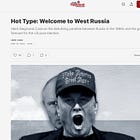
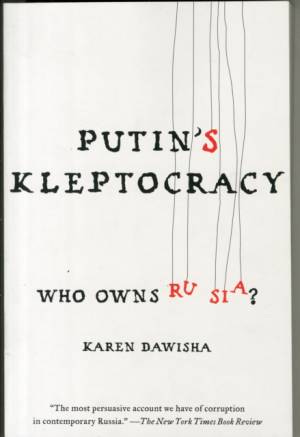



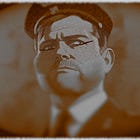
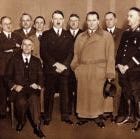

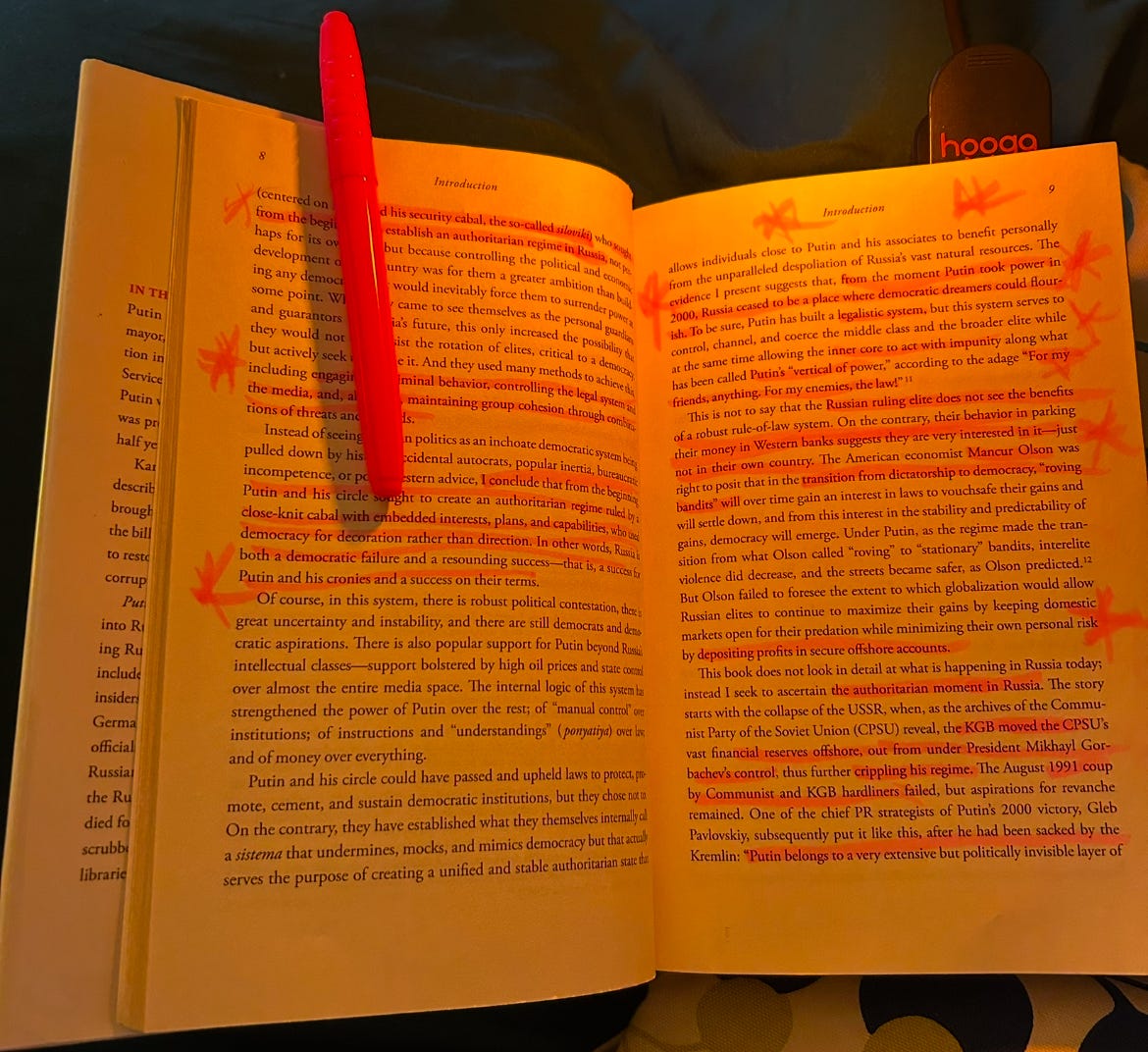
Thank you so much for your hard, relentless work! You’re a true hero!
=]